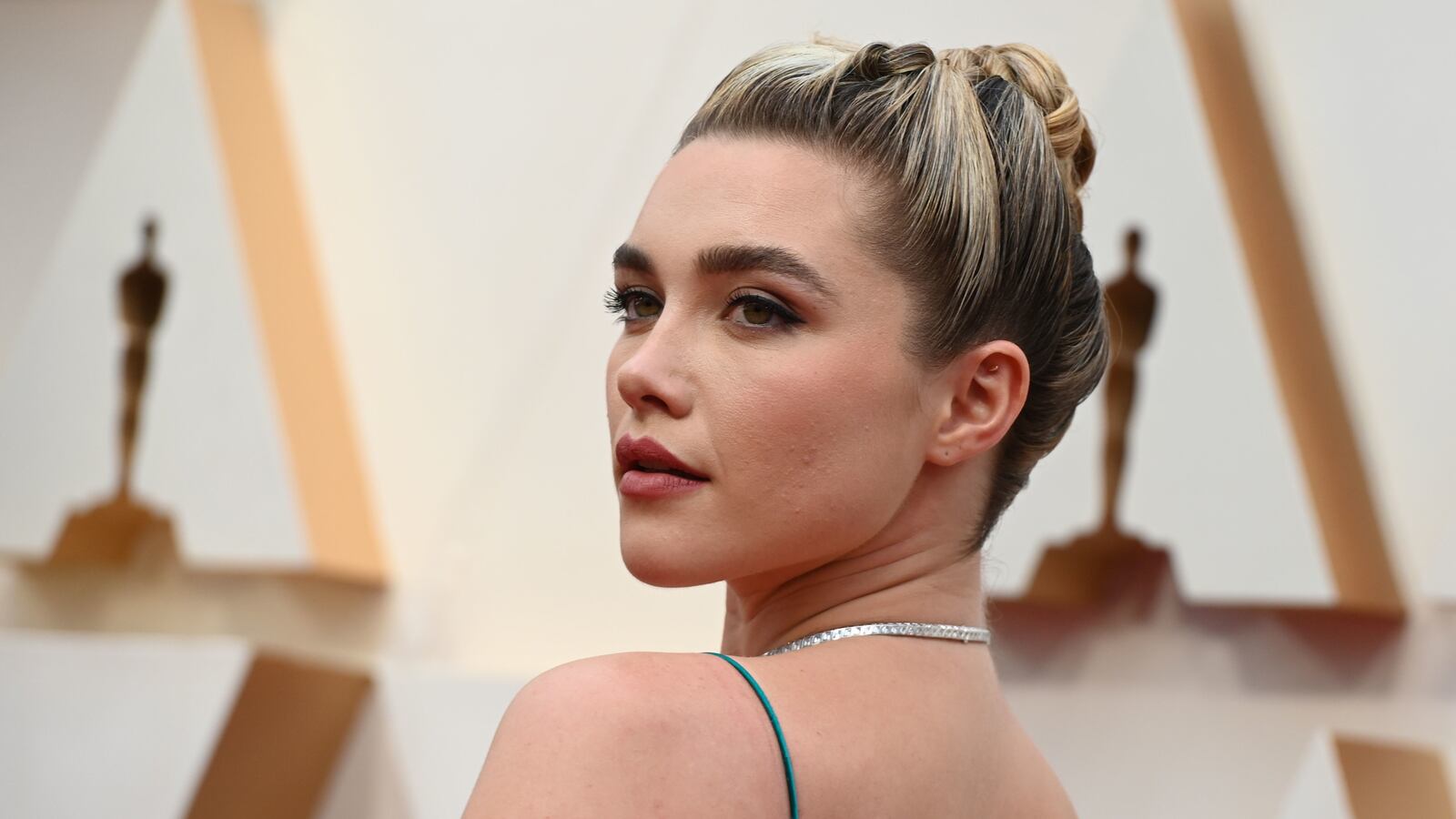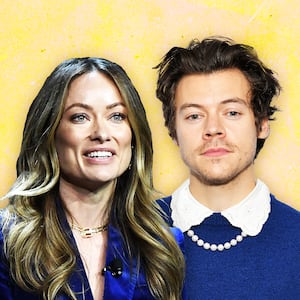This week, actress Florence Pugh revealed in an interview with Harper’s Bazaar that she had recently broken up with her partner of four years, Scrubs star Zach Braff. The pair had kept their relationship reasonably low-key, aside from a couple of Instagram pictures, in large part thanks to the COVID-19 lockdown. They seem to have ended on good terms with no drama and the pair will promote the film they made together, A Good Person, when it is released next year.
By the standards of celebrity romance scandals, the Braff/Pugh pairing was never exactly Kimye, and yet it elicited intense and alarming responses from the media and Pugh’s own fans.
To put it bluntly, the seeming majority of Florence Pugh’s fans did not like her with Zach Braff. They found the 21-year age gap between the pair of them unsettling or even problematic. He was constantly portrayed as being way out of her league or a drag on her blossoming career. Many a victory gif was shared on Twitter when the news broke, with the prevailing tone being one of giddy relief over the split. This was a curiously rare instance where the internet lambasted the male side of a celebrity romance rather than the woman (consider the likes of Olivia Wilde, Angelina Jolie, and Zawe Ashton.)
All of this came in spite of the fact that Pugh directly noted how the invasive and often cruel coverage of their romance, both in the press and from the internet, proved tough to deal with. In the Harper’s profile, she said that they kept their breakup as private as possible because "it’s been a relationship that everybody has an opinion on [...] I don’t think that people, just because they [celebrities] have this job, that every aspect of their life should be watched and written about. We haven’t signed up for a reality TV show."
Pugh is very much a celebrity of the moment, a public figure who seems to comfortably straddle the barrier between acclaim as a prestigious actor and online buzz in a thoroughly modern mold. She is popular in Marvel movies as much as prickly indie dramas, and she is immensely likable in interviews as well as on social media.
Her Instagram account, wherein she frequently films herself cooking, is highly charming but also bluntly candid when need be. She spoke out against misogynists who body-shamed her for wearing a see-through dress to a fashion event, noting "just how easy it is for men to totally destroy a woman’s body, publicly, proudly, for everyone to see." She even used her page to respond to the near-giddy theorizing that she had broken up with Braff to date her friend, fellow actor and Midsommar co-star Will Poulter.
In an Instagram Story, she said, "Man. This is getting a little silly now [...] I understand that the nature of this job is that you sometimes get your privacy completely bulldozed by paparazzi, but to fabricate this stuff actually does more damage than good." Pugh’s most recent comments regarding the invasive coverage, both from the media and from online spectators, mirror this open frustration. She has told us repeatedly how much this sort of slanted, cruel, and occasionally conspiratorial coverage hurts her—and yet it never stops.
After calling out "gossip channels that encourage members of the public to share private moments of famous people walking down the street" in the Harper's interview, the somewhat-infamous blind gossip account Deuxmoi responded via an Instagram Story that "the 'street' is not a private place" and that "if you don't want people talking about your relationship get a finsta." It's a predictably cold response to another human being's strife, but it is indicative of the general attitude towards how we talk about celebrities.
Fame demands an audience and there is an entire ecosystem at play to maintain it, from publicists to press to social media. Celebrities, willingly or otherwise, have to operate by the rule that their immense privilege is rooted in other people's interest in them and that they must offer something in return. Many famous people offer details about their private lives as part of that, but it shouldn’t be required. Pugh and Braff certainly did not spend the four years of their relationship courting the press or using their partnership as a way to sell something. Such things don’t stop the speculation, sadly. Certainly, if someone openly and repeatedly says that the ways their supposed fans talk about her is upsetting, surely some decorum is the least we can offer them?
We would be remiss if we did not discuss the primary reason that the Braff/Pugh romance seemed to rile up so many: the age gap. Over two decades separate the pair, and this was read by many as a display of power imbalance. Age gap romances have always inspired a fervent level of discourse—sometimes for bad-faith reasons, but not always. It is true that younger women are widely fetishized by older men. We’re all too used to seeing stories of 40- and 50-something dudes in Hollywood who marry women young enough to be their daughters. By now, it’s an astonishing cliché more than anything else. Some noted Braff's own history of dating younger women, including Mandy Moore and Taylor Bagley, both of whom were under 22 when they got together with him.
Pugh took to Instagram in a video post on April 2020 to call out the ways that her comments sections were flooded with harassment and abuse towards both herself and Braff because of their age gap. Many of the comments called Braff predatory and accused him of somehow tricking Pugh into being his girlfriend. "I am 24 years old. I do not need you to tell me who I should and should not love, and I would never in my life tell anyone who they can and cannot love," she said.
Nobody is obliged to like a certain celebrity. You’re free to be a hater if you want, although the intensity with which Pugh’s own self-described fans denied her own personhood, in terms of her relationship choices, was deeply revealing. We’ll never be able to stop the wildfire spread of false information or conspiratorial gossip, sadly, but we can note the ways that it hurts those in its crossfires.
Much of the hatred for Florence Pugh’s relationship choices is rooted not in real concern or celebration of Pugh, but an active denial of her ability to make her own choices. Disliking a celebrity’s partner is not the same thing as bulldozing their own pleas to be left alone in favor of continued attacks and accusations that she is the victim of a predator. We’ve seen how this line of thinking ends, as evidenced by the ghoulish conspiracies that have plagued the likes of Olivia Wilde and Harry Styles, and Meghan Markle and Prince Harry.
In the Harper's piece, Pugh said, "I feel like I am now getting into this groove in my career where I’m knowing what I can take, what I give, and what I will not accept anymore." She is clearly a celebrity with a keen awareness of what she wants, both professionally and personally, and she's not afraid to call out that which she finds invasive or distasteful. Let's hope the internet follows suit. Alas, that seems a tad too hopeful. After all, if people were this vicious with her last relationship, what’s to stop them from continuing the pattern when she dates someone else?








